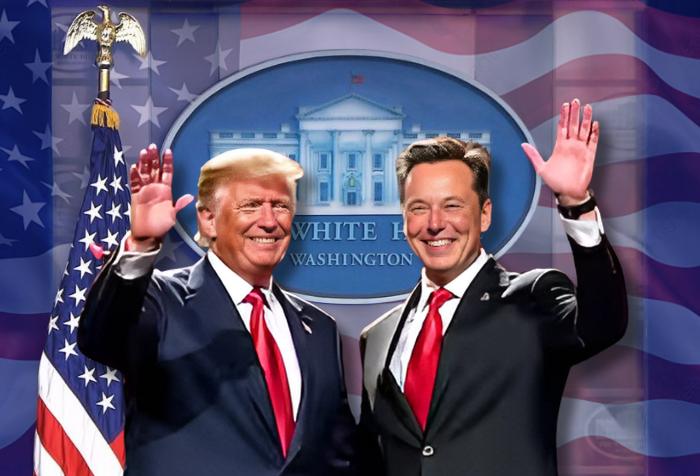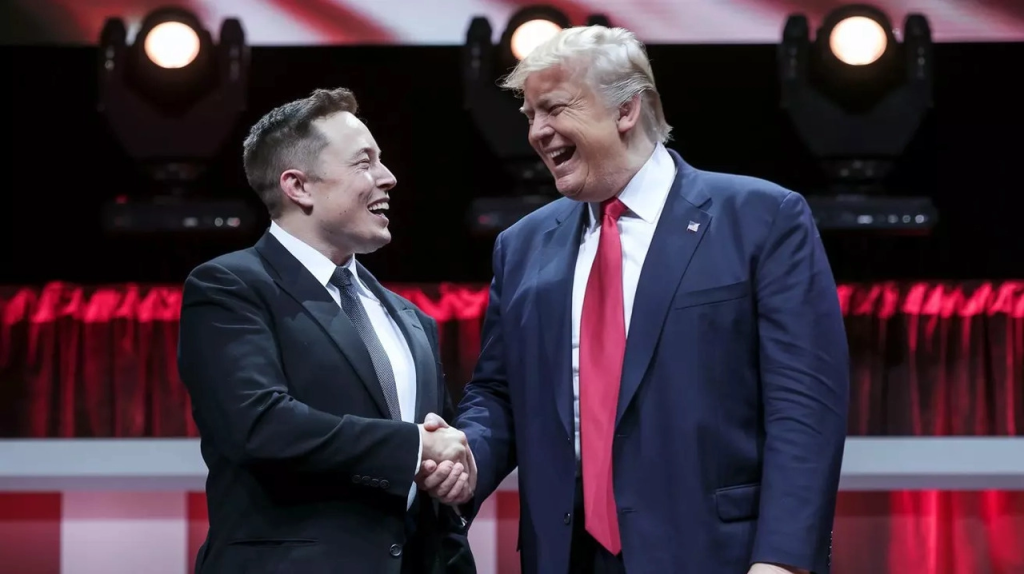
Elon Musk Appointed by President Trump: A Comprehensive Look at the Vision for Government Efficiency

In a landmark decision that has captured global attention, President Donald Trump has appointed Elon Musk, the billionaire entrepreneur and visionary behind Tesla, SpaceX, Neuralink, and The Boring Company, as the head of the newly established U.S. Department of Government Efficiency. The department, created as part of Trump’s ambitious reform agenda, aims to overhaul bureaucratic processes, eliminate wasteful spending, and modernize government operations by integrating cutting-edge technology and innovative business strategies.
This unprecedented move has drawn praise, skepticism, and intense debate from political circles, industry leaders, and the public. It also raises questions about the future of governance and the role of private-sector leaders in transforming public administration.
The Need for Efficiency in Government
The federal government, often criticized for inefficiency and excessive bureaucracy, has long been a target of reform efforts. According to a 2023 report from the Government Accountability Office (GAO), outdated IT systems, redundant processes, and overlapping programs cost taxpayers billions of dollars annually. Moreover, public frustration with slow-moving government services—from the DMV to Social Security offices—has reached an all-time high.
In his announcement, President Trump highlighted the urgency of the issue. “For too long, our government has been stuck in the past. Elon Musk is the right person to bring it into the future. He’s a leader, a visionary, and someone who gets results,” Trump said during a press conference at the White House.
Trump’s decision reflects a broader trend of seeking private-sector expertise to address public-sector challenges. By appointing Musk, Trump aims to replicate the entrepreneur’s track record of delivering innovative, high-impact solutions.
Musk’s Vision for a Smarter Government

Elon Musk, often described as a modern-day Thomas Edison, has a reputation for turning ambitious ideas into reality. From revolutionizing the electric vehicle industry with Tesla to launching reusable rockets through SpaceX, Musk has consistently pushed the boundaries of what is possible
During his acceptance speech, Musk outlined his vision for government efficiency. “Government systems should work as seamlessly as a Tesla. They should be fast, user-friendly, and technologically advanced. My goal is to bring Silicon Valley principles—innovation, efficiency, and scalability—to Washington,” Musk said.
Musk’s initial proposals include:
- AI-Driven Decision Making: Utilizing artificial intelligence to analyze government data and optimize resource allocation.
- Paperless Governance: Transitioning all government agencies to fully digital operations within five years.
- Renewable Energy in Federal Operations: Installing solar panels and battery storage systems at government facilities to reduce energy costs and carbon emissions.
- Streamlined Public Services: Redesigning platforms like healthcare.gov and the IRS website to improve user experience.
- Autonomous Infrastructure Projects: Incorporating AI and robotics to expedite infrastructure development, such as building smart roads and bridges.
The Department of Government Efficiency: Goals and Structure
The Department of Government Efficiency (DGE) is tasked with identifying inefficiencies across federal agencies and implementing innovative solutions. Key objectives include:
- Cost Reduction: Eliminating unnecessary spending and reallocating resources to priority areas.
- Operational Modernization: Replacing outdated systems with state-of-the-art technology.
- Cross-Agency Collaboration: Breaking down silos and fostering collaboration between departments.
- Citizen-Centric Services: Improving the accessibility and quality of public services.
- Sustainability: Promoting eco-friendly practices in government operations.
Musk will report directly to the President and work closely with other cabinet members, including the Secretaries of Defense, Energy, and Transportation. The DGE will also collaborate with private companies, leveraging expertise from Silicon Valley and beyond.
Reactions from the Political and Business World
The announcement has elicited a wide range of responses. Supporters argue that Musk’s appointment represents a forward-thinking approach to governance. Business leaders, including Bill Gates and Tim Cook, have praised the decision. Gates commented, “Elon has a unique ability to tackle complex challenges. His leadership could transform the way governments operate.”
However, critics have raised concerns about Musk’s lack of experience in public administration. Some fear that his unconventional style and focus on disruptive innovation may clash with the intricacies of government processes. Others worry about potential conflicts of interest, given Musk’s ties to industries heavily regulated by the federal government.
Democratic leaders have expressed cautious optimism but emphasized the need for transparency. Senator Elizabeth Warren stated, “If Mr. Musk can deliver meaningful reforms, we welcome it. But we must ensure that these changes serve the public good, not private interests.”
Challenges on the Horizon
Musk’s journey as head of the DGE will not be without hurdles. The federal government, with its entrenched bureaucracy and political polarization, presents a vastly different landscape from the entrepreneurial world of startups and tech companies. Key challenges include:
- Resistance to Change: Convincing long-standing government employees and unions to adopt new systems and practices.
- Budgetary Constraints: Implementing reforms within the confines of existing budgets and securing bipartisan support for additional funding.
- Ethical Concerns: Addressing potential conflicts of interest and ensuring impartiality in decision-making.
- Public Expectations: Managing high expectations from citizens and stakeholders while delivering tangible results.
Additionally, Musk will need to navigate a politically charged environment where every move is scrutinized. Critics on both sides of the aisle will be watching closely to gauge the success or failure of his initiatives.
Implications for the Future
If successful, Musk’s appointment could mark the beginning of a new era in governance. His approach could set a precedent for integrating private-sector expertise into public administration, inspiring other nations to follow suit. Moreover, it could redefine the relationship between technology and government, paving the way for a more efficient, transparent, and citizen-focused system.
However, the stakes are high. Failure to deliver results could undermine trust in such experimental appointments and reinforce skepticism about the role of private-sector leaders in public service.
Conclusion: A Bold Experiment in Governance
Elon Musk’s appointment as head of the Department of Government Efficiency is a bold and unprecedented move that reflects a growing demand for innovative solutions to age-old government challenges. While the path ahead is fraught with complexities, Musk’s track record of turning ambitious visions into reality provides a glimmer of hope.
As the world watches this bold experiment unfold, one thing is clear: the intersection of innovation and governance has the potential to reshape the future of public administration. Whether Musk succeeds or fails, his tenure will undoubtedly leave a lasting impact on how we think about government in the 21st century.